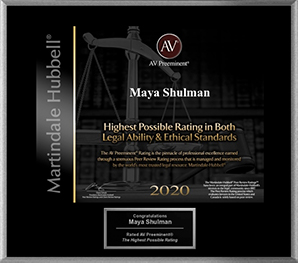
Divorce can be traumatic for everyone in the family, especially for children. Data from Centers for Disease Control and Prevention (CDC) reveal that 50% of first marriages end up in divorce. More than 1 million children are affected in some way annually in the United States by the process and implications of divorce.
Traditionally, until the 1960s or 70s, the “tender years doctrine” was applied by most states in the US when deciding custody. The doctrine awarded child custody always to mothers by default, as being the natural guardians of their children. In the recent times, law has changed in the sense that no parent automatically gets the custody of children.
Each of the states in the US has its own law when it comes to child custody. In most cases, biological parents make decisions on behalf of their child as to all aspects of their upbringing following a divorce. In case there is a dispute on who the actual parent is, the juvenile courts will determine the custody, which takes into account the best interests of the child.
Do Children Have A Voice In Custody Preference?
In families where all members can discuss and come to an agreement out of court as to who will get the custody, the process is smoother. When younger children and infants are involved, either the parents or the court has to decide what is in their best interests.
Many states do consider the preferences of children while considering custody decisions. For instance, in California, the Family Code came into force in 2012, section 3042 of which deals with the child’s custody preference. The code states that “if a child is of sufficient age and capacity to reason so as to form an intelligent preference as to custody or visitation,” the court shall give due consideration to the preference. Besides, if a child is 14 years or older, and wants to address the court regarding custody preference, the child will be permitted to do so.
Experts do understand that interviewing the child during a court hearing can be a very traumatic experience and should be avoided. A private interview is often scheduled at either of the parent’s request with the judge.
There are many reasons why the child’s preference on custody alone is not enough to make decisions:
- The custody preferences of the child may be colored by anger. Some kids do not like being disciplined and may show a preference for the more lenient parent who may not be necessarily the more responsible one.
- If the child is younger, he or she can be manipulated by any one of the parents in order to secure custody.
- The child may not understand all of the reasons behind a parent’s actions or decisions. For example, refusing a trip or a toy may be due to affordability issues, and not based on hatred or irresponsibility.
- Many times the child may not even have a preference or may not be sure.
- Best interests of the child may be contradicting his or her preference.
Since the judges have to use their discretion in deciding each case based on its merits, they usually take the help of a child psychiatrist or other experts.
Researchers Bala and Birnbaum who studied some of the custody disputes, did find that many children do “want a say in how they are to be involved in the legal process”, but not many were keen on making decisions about their future.
Since the custody decisions are changeable with evolving situations, no child needs to be stuck with an undesirable arrangement long term.







